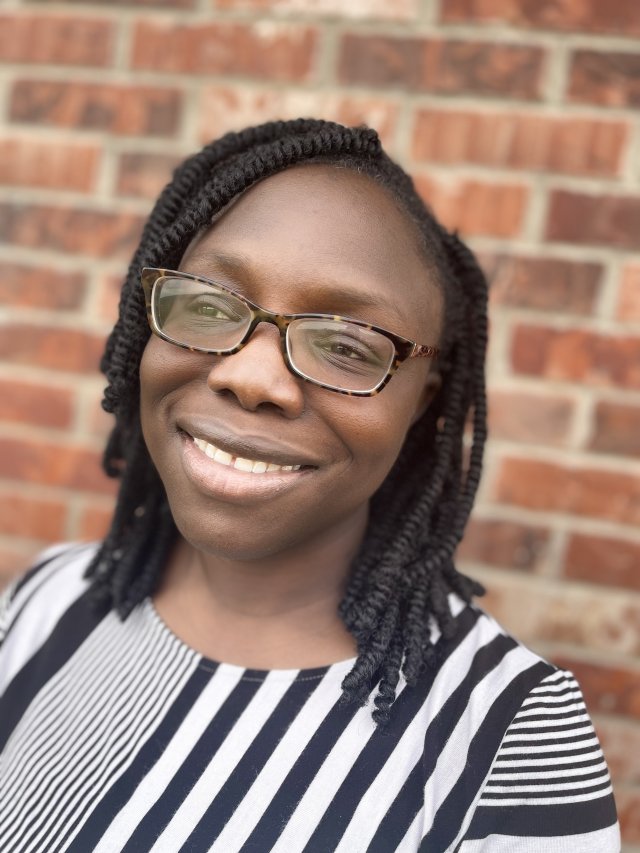Meet EPA Researcher Aderonke Adegbule, Ph.D.

Aderonke, or Addie, Adegbule’s research is focused on understanding how per- and polyfluoroalkyl substances (PFAS) impacts groundwater.
Tell us about your background.
I was born in California while my dad pursued his masters and doctoral degree at UC Davis. After his program, he returned to his job at the University of Maiduguri, Nigeria where I grew up. I obtained my first degree in civil engineering from the university of Maiduguri in 2002 and my master’s degree in civil engineering from the University of Ibadan, Nigeria. I got a job as a civil/structural engineer with the Nigerian National Petroleum Corporation after graduation and worked in Lagos, Nigeria for about 8 years. During my time working in oil and gas, I had developed an interest in environmental protection. I decided at that point to return to the US and obtain my doctoral degree in Environmental Engineering from the University of Oklahoma. During my last year in the program, my advisor told me about an opportunity for doctoral research at EPA so I applied and was accepted. I started working there as soon as I graduated.
How does your science matter?
My research adds to the existing knowledge base on PFAS, a group of man-made chemicals which are used for a variety of purposes. These chemicals eventually find their way into the environment and pollute surface and ground drinking water sources. Unfortunately, because of the strong carbon-fluorine bonds in these compounds, they do not break down easily and can accumulate in the human body and remain in the environment for years.
To successfully remove any contaminant from a polluted environment, or to curb the spread to unpolluted areas, a good understanding of how the contaminant behaves in the environment is required. Using available experimental or field data, experts are able to simulate spill scenarios and further increase the understanding of the contaminant’s characteristics.
My research on how PFAS impacts groundwater will help experts improve methods of removal or control and help in the formulation of policies to protect human health and the environment.
When did you first know you wanted to be a scientist?
I knew as early as elementary school that I was going to be a scientist like my dad. I enjoyed mathematics and science and did very well in those subjects.
If you could have dinner with any scientist, past or present, who would it be? What would you ask?
I would choose Thomas Edison. I’d ask him his strategy for not giving up after several failed attempts and what kept him going.
If you weren’t a scientist, what would you be doing?
I’d be a writer maybe. I enjoyed drawing comic books and writing fictional stories when I was in middle school and my literature teacher at the time was convinced that I was meant to be a writer and not an engineer.
If you could have one superpower, what would it be and why?
Mind reading. Life would be so much easier if we all just understood each other better. If I could really see the world from other people’s perspective, I believe it would make me a better person to work with and help me better communicate with others.
Any advice for students considering a career in science?
Be inquisitive. It’s okay to ask questions. Question anything that you don’t fully understand. Search for answers. Study to find out more. Why? What if? How? When? Our questions usually lead us to answers and those answers help us learn something new about our world. And that is basically the heart of science. So, get into the habit of asking questions early.
Editor's Note: The opinions expressed herein are those of the researcher alone. EPA does not endorse the opinions or positions expressed.
